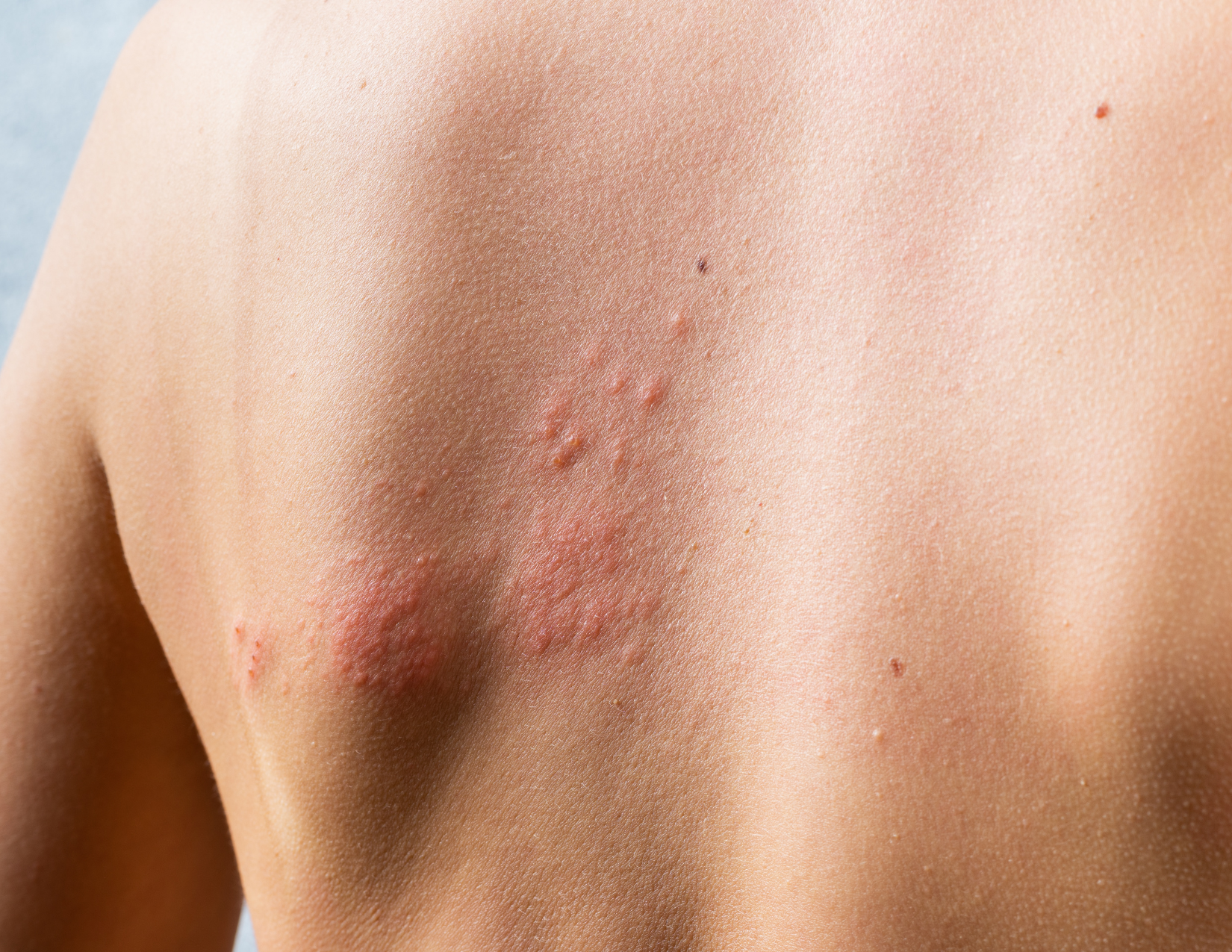URTICARIA (HIVES)
Home > Urticaria (Hives)

Hives, also known as urticaria, is an adverse skin condition that commonly affects about 15–25% of the population at some point in their lives. It is more prevalent in females than males, with the ratio being 4:1. In most cases, urticaria is self-limited.
Urticaria often causes wheals on any body part, so those with the condition can experience hives on the lips, tongue, throat, and ears. These wheals are pink or red, varying in size from approximately 5 mm (0.2 inches) in diameter to the size of a small dinner platter. They usually cause severe itching, stinging, or burning sensations and often have a pale border. The wheals typically disappear within 24 hours, but new lesions may continue to develop. Urticaria occurs as either acute or chronic, depending on its duration.
Acute urticaria is urticaria that has been present for less than six weeks. This condition occurs most often in children and young adults.
When urticaria lasts for at least six weeks, it is called chronic urticaria. This medical condition is frustrating and problematic for patients and clinicians. Urticaria lips are just one example of such a situation that may arise. In about 90% of chronic urticaria cases, the underlying cause is unknown, and doctors call it chronic idiopathic urticaria (CIU). Middle-aged women are more prone to this medical condition. To rule out autoimmune diseases such as rheumatologic conditions, hyper or hypothyroidism, and malignancy, doctors often perform some tests.
Urticaria occurs due to an inflammatory reaction in the skin that results in the leakage of capillaries in the dermis, leading to edema. This swelling persists until the surrounding cells absorb the interstitial fluid.
The production and distribution of histamine and other inflammatory substances (cytokines) from skin cells may cause urticaria. This development can occur due to an allergic or non-allergic reaction, and the mechanism of histamine release can vary accordingly. Causes of acute urticaria are usually due to direct contact with an allergenic substance, an immune response to food or some other allergen, or other reasons, such as emotional stress.
Other causes include drugs such as:
- Anti-diabetic sulfonylurea glimepiride
- Dextroamphetamine
- Aspirin
- Nonsteroidal anti-inflammatory drugs (NSAIDs)
- Penicillin
- Clotrimazole
- Sulfonamides
- Anticonvulsants
- Herbal supplements
Recent or chronic infections, vaccines, or insect stings are also known triggers. Even non-medical related events – rubbing, sweating, exposure to cold or sun can trigger urticaria.
Angioedema is identifiable as a swelling of the deeper layers of the skin and tissues. It often causes pain or a burning sensation and usually affects areas such as the hands, feet, eyes, lips, and sometimes the airway. Some people may experience both urticaria and angioedema simultaneously or separately. About 50% of patients have both urticaria and angioedema, while 40% have urticaria alone and 10% have angioedema alone. Severe cases of angioedema of the throat can be life-threatening.
Treatment of urticaria is often challenging. There are no guaranteed treatments or means of control. Some people are treatment-resistant. Medications can spontaneously lose effectiveness, requiring new drugs to control attacks. It can be challenging to determine appropriate medications because urticaria is intermittent, and outbreaks typically clear up without any treatment.
Identifying triggers and limiting exposure to them can help manage hives outbreaks, but it may not be easy as they may not always be apparent. While avoiding triggers is a standard treatment approach, it may not always be feasible.
Immunotherapy treatment can help people who suffer from chronic urticaria. These treatments aim to reduce the severity and frequency of hives outbreaks by gradually exposing the patient to small increments of the allergen over time.
There is a lot of exciting new research regarding urticaria and alternative treatments. Your
allergist can provide you with more information on the treatment options that are best for you.

